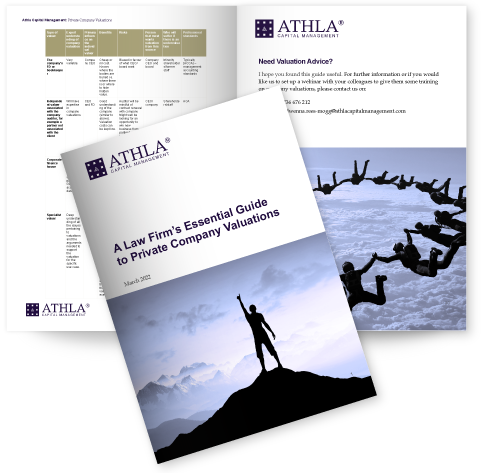Raising the Anchor on Valuations
September 12, 2023

The IPO market has been going through a particularly quiet patch after the frenzy of 2021 becomes an increasingly distant memory.
In fact, the slump in IPO activity is the most pronounced since 2009.
Data from the Association for Financial Markets in Europe, reported by the Financial Times HERE, shows that just €2.4bn was raised across 34 IPOs across Europe in the first half the year. This “marks a 42 per cent fall compared with the same period last year” in the amount of capital raised through IPOs.
There are many factors at play in this slowdown in IPO activity; persistently high inflation which has weighed on profitability and the accompanying increases in interest rates, as well as geopolitical shocks like Russia’s invasion of Ukraine.
Another drag on the IPO market is the fact that many companies are reluctant to be the first to list. Thomas Karthaus of Newton Investment Management commented in recent interview (which you can read in full HERE) that many companies “have a desire to go public, but none of them want to be the first one, or the one to open the market”.
Many firms which raised large amounts of capital during 2021 are reluctant to IPO at what would be a significantly reduced valuation. This is what Jay Ritter, a University of Florida finance professor, recently referred to as the “anchoring” of valuations to the particularly high valuations of 2021. You can read the full Washington Post article he is quoted in HERE. Many of these companies, as a result of their fundraising in earlier rounds during the highwater markets, have sufficient cash that they can hold off on listing publicly until the IPO market rebounds.
We keep our eye on trends in valuations at all stages and across both the private and public markets.
The upcoming IPOs of Instacart and Arm Holdings Ltd will provide a particularly interesting barometer of the IPO market and it is yet to be seen whether the companies mentioned by Thomas Karthaus will follow their lead into public ownership or remain cautious.
Comparable quoted companies are a very important part of a private company valuation.
As well monitoring what is going on at a macro level, we have to hunt for relevant comparables which can be harder than you think!
With a reduction in listed companies it becomes essential to look far and wide to find ones and if they are not located in the country where the private company is based of course we have to consider that issue.
We also think hard about the relevant private company discount to apply to take account of the fact that a private company is not listed and therefore the shares have much reduced liquidity. When determining how a company’s illiquidity might impact its valuation, we carefully consider academic research. Applying an illiquidity discount reflects the fact that a private company is inherently more difficult to be sold and converted into cash quickly. There is also an intrinsic risk that any sale will be at a reduced value. Typically a discount of 20-30% is used, although we take into consideration all relevant factors when determining which end of the range to use, for example the company’s maturity.
Do get in touch if one of your clients needs a valuation. You can reach me anytime on 07736 676 212 or at modwenna.rees-mogg@athlacapitalmanagement.com.


